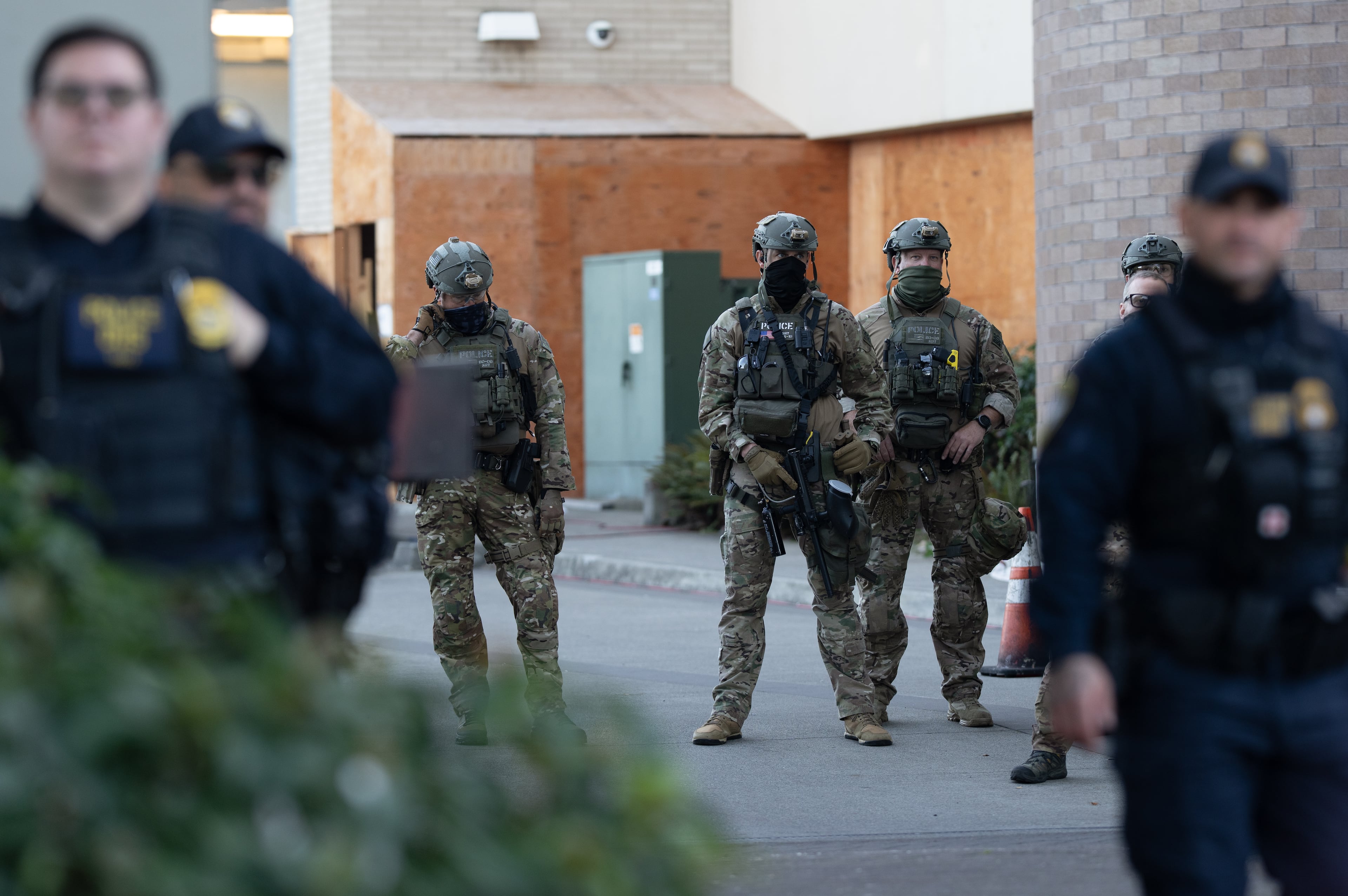Harvard is right to protect academic freedom

I fear the great American experiment is in peril. On Monday, that fear took tangible form in the Oval Office, where the President of the United States met with the leader of El Salvador. They discussed, among other things, why they have no plans to return Kilmar Abrego Garcia — a legal U.S. resident of 14 years — who was wrongly deported and imprisoned in one of the world’s most dangerous countries.
Let me be clear: Abrego Garcia is not a U.S. citizen. He is a citizen of El Salvador, but in 2019, a federal immigration judge granted him protective status, allowing him to stay in the U.S. to escape gang violence. He has never been convicted of a crime. He was living here legally.
So why was he deported — stripped of due process and sent back to danger?
The president and his Cabinet did not explain, other than to label Abrego Garcia a “gang member” and criminal — without evidence, and in defiance of not one, but two federal court orders. One came from the U.S. Supreme Court in a unanimous 9–0 ruling. The other is from a federal judge demanding compliance. That same judge on Wednesday said he believes there is probable cause to hold the government in contempt.
This is lawlessness, plain and simple. And it’s not just about one man — it’s a pattern.
This administration has repeatedly retaliated against perceived critics — from removing the Associated Press from the press pool to threatening law firms to stifling dissent in academia. And that’s what deeply worries me: We are watching the slow erosion of the Constitution under the weight of vengeance, tribalism and fear.
Academic freedom, legal independence, freedom of speech — these aren’t luxuries. They are the foundation of a functioning democracy. When they are assaulted, especially by those in power, we are all at risk.
I’ve lived this myself.
A few years ago, I was an adjunct professor of philosophy and religion and later was named a historic first scholar in residence at a public Virginia university. I asked a question — on my personal Twitter account — about how Christian parents might discuss an LGBTQ+ comic book character with their children. I didn’t attack anyone. I posed a civil question. The response? No conversation. No debate. No dialogue, which is exactly what we do at the academy. Just anger, hateful emails, personal attacks, demands to have me removed and worse.
Protests. Outrage. Threats. My teaching career was over. I wasn’t speaking in class. I wasn’t speaking for the university. And yet I was vilified for expressing a viewpoint. The First Amendment offers no asterisk: It protects speech, even when people disagree with it.
The irony? It was conservatives who defended me publicly and legally. Now I see some of those same groups justifying political purges, press intimidation, and executive overreach because they disagree with those who protested Israel at Harvard, Columbia and other schools around the country. That is not America.
Thomas Jefferson, who wrote the Declaration of Independence, believed strongly that an informed populace was essential for the success of a republican form of government. He believed that public education was essential for a successful republic and a free society. He argued that an educated citizenry was necessary for informed decision-making, responsible participation in government, and the ability to safeguard against tyranny.
He argued that education enabled citizens to make sound judgments, participate effectively in the democratic process, and hold their leaders accountable.
When Jefferson founded the University of Virginia, he envisioned an “academical village“ where faculty, students and the community would gatherexchange ideas and debate policy. When he laid the cornerstone in 1817, according to his notes and writings, Jefferson wanted to create “public citizens” — those engaged in public discourse.
That is not what we have in American education now. And it is in large part why Trump was re-elected to a second term after the protests against Israel 2023-2024. Academia had seemingly lurched too far left with board DEI policies that began to compel speech, demand conformity to university statements, and punish those who dissented or disagreed in any way.
As we near the 250th anniversary of this republic, we should be recommitting ourselves to liberty, pluralism and justice — not tearing them apart in pursuit of revenge politics.
Instead, we’re watching the White House demand that prominent law firms — some of the largest in the world — submit to executive orders that would punish them for representing immigrants or political opponents. Let me be clear: This is unconstitutional. This threatens the independence of the judiciary and the legal profession. It’s an attempt to bully lawyers into silence.
Every lawyer in America takes an oath to uphold the Constitution and defend the rule of law. Now is the time to remember that oath. Law firms must speak up and stand firm — just like Harvard recently did in defending academic freedom, even amid political pressure.
Don’t be fooled into thinking this affects only “illegals,” or activists or journalists. This is a broader attack on the norms and institutions that protect all Americans — regardless of party.
We are not enemies. We are fellow citizens. And we must reclaim a politics of decency, dialogue and mutual respect before it’s too late.
Because when freedom falls, it rarely does so in one dramatic collapse. It erodes slowly — one deportation, one silenced voice, one ignored court order at a time.

Sophia A. Nelson is an award-winning nonfiction author of four books, including “E Pluribus One: Reclaiming our Founders’ Vision for a United America.” She is an award-winning journalist for her work in Essence magazine. She is a renowned global women’s conference speaker and corporate DEI trainer.


